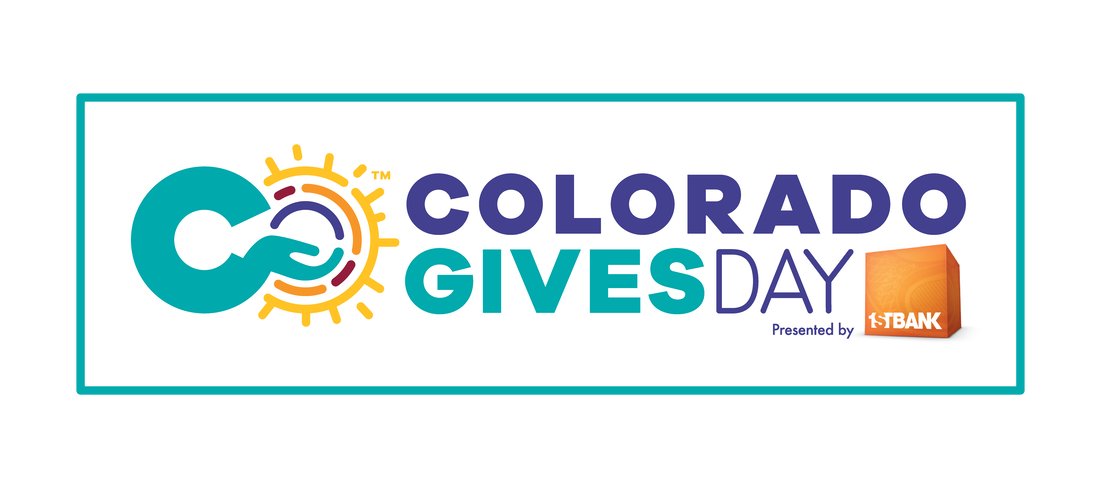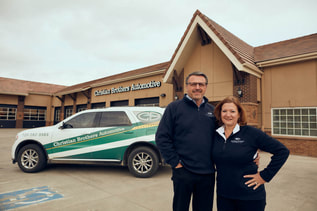 .Aging Resources wouldn't operate without our incredible volunteers and community partners. It takes a village, and we are so grateful for those who are part of ours by supporting the work we do at Aging Resources. Each month we recognize and highlight a volunteer or community partner of Aging Resources. It's our (small) way of thanking the many individuals and businesses who donate their time, talent, and treasure in supporting older Douglas County adults by partnering with ARDC. To kick off 2024, we're highlighting one of our longstanding and integral community partners, Christian Brothers Automotive. The team from Christian Brothers volunteered with Aging Resources through their annual "day of service" by helping seniors with yard cleanup, but the Castle Rock location also services Aging Resources vehicles...at no cost! Their guiding vision: Love Your Neighbor as Yourself. Something the Christian Brothers family is definitely doing! Says Steve Peterson (Owner/President) - "We love being able to assist ARDC in serving the community." Their INCREDIBLE contributions have saved Aging Resources thousands of dollars, allowing us to utilize those funds in supporting the growing needs and number of older adults in Douglas County. We are so grateful for Christian Brothers and ALL that they do to support Aging Resources and seniors throughout Douglas County. Their generosity and giving hearts are the very definition of what community is all about. If you're interested in partnering with Aging Resources we'd love that! Please send us an email here AuthorAmy Pfister
0 Comments
 As we enter the giving season, we often look for ways to demonstrate gratitude to those who matter most to us. The holiday season is a wonderful time to give back but is also a great reminder about the importance of giving back year-round. One excellent way to show gratitude is to seek out opportunities to give back to the people or organizations that help make a difference in our communities. Supporting a local charity or non-profit can have a direct and immediate impact on the very community you’re a member of. To help get you into the holiday mood while also tapping into your spirit of service, here are some ways you can give thanks by giving back. Volunteering with a local charity like Aging Resources, a food bank, a library, or a shelter is a great way to help your neighbors in need. In Colorado especially, there are many opportunities to volunteer around the holidays. Volunteering doesn’t require a lot of time either. Many non-profits, like Aging Resources, offer flexibility and remote opportunities so you can volunteer when it works best for you. If you don’t have the time to volunteer, consider making a donation to a local charity. On December 5th Colorado celebrates Colorado Gives Day, a statewide day of giving that supports the non-profits that make a difference right here in our great state. By “giving where you live” you are directly helping organizations that work to make a difference in your community. This year especially many non-profits (including Aging Resources) are seeing an increase in need and a decrease in funding. If you have the means, please consider supporting Aging Resources on Colorado Gives Day by donating here. If you’re not able to financially donate, please help spread the word about Aging Resources by creating your own (free) fundraising page on our behalf via Colorado Gives Day. Learn more about how to do that here. Donating your time or resources to support those around you is extremely beneficial both for you and your community. It is statistically proven that people who give back regularly are healthier both physically and mentally. Giving back is also a great way to get to know your community and its citizens. When you volunteer or donate locally, you get a better understanding of the circumstances of other members of your community. No matter how you choose to express gratitude and give back this holiday season, it has the potential to make a big difference in the life of another person and that is definitely something to be thankful for! AuthorAmy Pfister - Community Engagement Coordinator 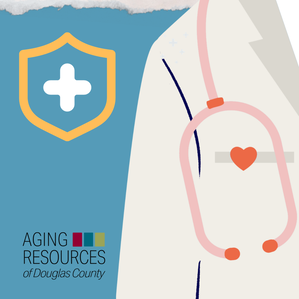 It's that time of year - pumpkin spice lattes, chilly mornings, and Medicare sign enrollment! This year, Medicare's Open Enrollment Period takes place from October. 15, 2023, through December. 7, 2023. Medicare coverage changes go into effect on January 1, 2024.
Aging Resources of Douglas County almost always defer to the Denver Regional Council of Governernment's SHIP Program to answer these questions and to get advice. Site here. What is SHIP? It stands for the State Health Insurance Assistance Program. SHIP representatives do not represent any one insurance plan but rather provide trusted advisers who give non-biased assistance to help you choose the best plan for your needs. SHIP also runs the Senior Medicare Patrol, a healthcare fraud reporting program. SHIP provides Medicare beneficiaries with objective information, counseling, and enrollment assistance. SHIP counselors can speak to individuals and groups about Medicare benefits, coverage rules, written notices, forms, appeal rights, procedures, and more. They also provide free, unbiased, one-on-one insurance counseling and assistance to Medicare beneficiaries, their families, friends, and caregivers. Counselors assist people in obtaining coverage through options that include the original Medicare program, Medicare Advantage (Part C) plans, and Medicare Prescription Drug (Part D) plans. They can help people understand Medicare Supplemental (Medigap) insurance policies and explain how these and other insurance options work with Medicare. The Senior Medicare Patrol program helps prevent Medicare fraud by allowing beneficiaries to protect, detect, and report suspected abuse of the program. If you receive bills for services you did not receive, see claims on your quarterly Medicare Summary Notice for visits you didn't make, or if you receive phone calls or visits from people offering to get you things free of charge, call 303-480-6835 and the DRCOG staff will assist you. AuthorKarie Erickson - Founder/CEO Aging Resources of Douglas County
AuthorAmy Pfister - Community Engagement Coordinator 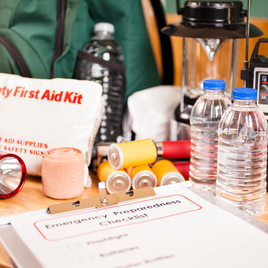 Disasters and emergencies can hit at any time, and as we learned from the recent hurricanes, floods, and fires, they wait for no one. In preparation for September’s National Emergency Preparedness Month, let’s talk about some specific ways that you can be prepared. First, make a plan! Know which disasters could strike your area, and work through scenarios to prepare yourself in case of evacuation, or shelter in place. This way, you know what to do in either case. Colorado weather can be unpredictable- be sure to be prepared for hot summer months, a dry fall season, and heavy snow in both the winter and spring months. Wildfires, tornados, and flooding are not uncommon here in Colorado, so be sure to think through all of these types of emergencies. Determine how and who you will communicate with if you have a specific need. We suggest developing a detailed emergency communication plan for you and your family. No longer drive? Determine who you can call for transportation help if it is necessary that you evacuate. It’s crucial to plan for your daily needs and to know what to do if they become limited or unavailable. Another must-have… Assemble an Emergency Supply Kit. A great resource to start with is available via the link here. They even have a printable list to take with you to the grocery store. Must-have items include water, non-perishable food, radios, flashlights, first aid kits, and individual needs such as medicines, medical supplies, and essentials for pets and service animals. Don’t forget mobility devices, and to store important documents and like items together. An even better step would be to place them in a flood-safe place or in water-tight plastic bags. Include things like passports, birth certificates, insurance documents, and medical information. Remember, being organized is a great way to prevent panic during the time of an emergency or disaster. Sign up for CodeRED & Access and Functional Needs Registry. Our friends at Douglas County’s Office of Emergency Management have great information listed on their website and two programs to help you stay safe in the event of a disaster or emergency. CodeRED is a service in which you are alerted by phone, email, and text about emergencies in your area. It also will provide you with instructions on what to do to protect life and property. Head over to their website here to sign up today! Additionally, the Access and Function Needs Registry (AFN) is a database containing information about individuals in Douglas County who may require assistance in the event of a disaster. If you have special medical needs or physical disabilities that would make it difficult to follow public safety directions, please sign up today here! As always, we’d be happy to help any older adult here in Douglas County create a plan that will keep them safe in the event of a disaster. Give us a call at (303) 814-4300 if this would be something that would benefit you or an older adult you know! AuthorKelsey Thiessen, Director of Operations at Aging Resources  As our parents age, it becomes increasingly important for us to provide them with the care and support they need. However, juggling the responsibilities of caring for aging parents while maintaining your own mental and physical well-being can be a challenging task. Here, we will explore the challenges, strategies, and rewards of caregiving and provide you with practical tips and advice to navigate this journey. Understanding the Challenges:
Prioritizing Your Well-being:
The Rewards of Caregiving:
Don’t forget Aging Resources is here to help you navigate this very important journey! Caring for yourself is not selfish but a prerequisite for providing the best possible care for your loved ones. Embrace the rewards of caregiving and cherish the opportunity to create lasting memories with your aging parents and know that you are making a difference in their lives. www.goardc.org AuthorBarbara Prince, Aging Resources Office Coordinator It’s National Safety Month and let’s talk about staying safe in your own home. Older adults face a variety of risks from falls to fires, so taking the right safety precautions is key in keeping safe while having the freedom to continue living independently. It’s an important reminder to review what can be done to make sure your home is well-maintained and free of hazards. This includes making sure the floors are free of clutter, carpets are tacked down, cords are tucked away, steps are free of items, no loose rugs, and the outdoor areas are well-lit. Additionally, smoke and carbon monoxide detectors should be tested regularly, and smoke detectors should be changed every ten years. Other safety features to consider include stair railings, grab bars in the shower and near the toilet, and handrails on both sides of the stairs. Do you have a plan for emergency situations? In the event of a fire, will you need extra assistance in leaving your residence? The Douglas County Access and Functional Needs Registry (AFN) is a database containing information about Douglas County residents who may require assistance in the event of a disaster. The Douglas County AFN Registry should be considered for all people who have special medical needs (e.g., oxygen or life support systems that are dependent upon electrical power) or have physical disabilities that would make it difficult to independently follow public safety directions, such as evacuation if the need arose. For more information about this program, email [email protected]. A medical alert system can provide further peace of mind, especially for those who live alone or who may have a fear of falling. These systems connect directly to a monitoring center in the event of an emergency. They typically come with a base unit that connects to a home telephone line and a wearable device, such as a pendant that can be worn around the neck or wrist. If the wearer has a medical emergency, they can press a button on the pendant and be instantly connected to a monitoring center and have help dispatched within minutes. In a Forbes Health survey of 2,000 U.S. adults conducted by One Poll, 54% of U.S. adults say they or the adult they care for use a medical alert system. Of those who use a medical alert system for themselves or the adult they care for, 86% say the device has saved them (or the person they care for) from an incident. Aging Resources wants everyone to feel safe in their surroundings and we recently partnered with ADT, the #1 home security provider in the U.S., to provide a discount on the ADT Medical Alert System. For more information, go to adt.com/health and use Promo Code: ARDC1 for free shipping, free activation, and $6.00 off monthly monitoring. AuthorLori Gloer 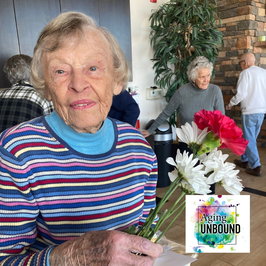 Did you know May is Older Americans Month? Established in 1963, Older Americans Month (OAM) is celebrated every May. Led by the Administration for Community Living (ACL), OAM is a time for us to acknowledge the contributions and achievements of older Americans, highlight important trends, and strengthen our commitment to honoring our older citizens. Every President since Kennedy has issued a formal proclamation during or before the month of May asking that the entire nation pay tribute in some way to older persons in their communities. This year's theme for OAM, Aging Unbound, offers an opportunity to explore a wide range of aging experiences and to promote the importance of enjoying independence and fulfillment by paving our own paths as we age. Here are some ways we can all participate in Aging Unbound:
Here in Douglas County, we have one of the country's fastest-growing older adult populations in the country! By 2030, 1 in 4 residents will be over 60, and we will add 81,000 seniors in the next 18 years right here in our county. If you are an older adult, you know firsthand we are living longer, healthier lives due to advances in medicine, technology, communication, and research. And living in Douglas County, among the nation's healthiest counties, is an added bonus! Need help to decide what to do for Older Americans Month? Connect with Aging Resources of Douglas County to volunteer, reach out to the local community college or library to find programs in your community, and, most importantly, celebrate the older Americans in your life! www.agingresourcesdougco.org AuthorAmy Pfister
AuthorSarah Piquard - ARDC Volunteer Coordinator What is a “File of Life” you might ask? A “File of Life” is a refrigerator magnet with a pocket to hold a form that contains very important information. The important information includes your name and address, emergency contacts, and all kinds of medical information such as medications, recent surgeries, medical conditions, allergies and your insurance information. It also contains information about if you have a living will, health care proxy, and/or a “Do Not Resuscitate” (DNR) form and where these forms can be found. Emergency Medical Service (EMS) personnel nationwide know to look at the refrigerator for this important information when they are called to provide emergency medical care. Sometimes the person needing the emergency care is unable to speak for him/herself, so having a File of Life readily available in emergency situations is incredibly helpful to ensure that he/she receives prompt, quality medical care. If you would like a File of Life, we would be happy to get one to you, just give our office a call at 303-814-4300. Once you receive your File of Life, take some time to complete it, ideally with your closest family member(s). It can trigger discussions about topics that are not that easy to talk about but are extremely important to share with those closest to you, to help ensure your wishes are honored. If you already have a File of Life, take a few minutes to review it and confirm the information is up to date. Another friendly safety reminder especially for all our wonderful volunteers, please make sure you are current with your cardiopulmonary resuscitation (CPR) certification and periodically review the basic steps. CPR Steps | Perform CPR | Red Cross Author Brenda Gearhard Client Specialist, Aging Resources of Douglas County |
AuthorsBlogs are written by ARDC staff members Archives
January 2024
Categories |
Aging Resources of Douglas County 104 Fourth Street, Castle Rock, CO 80104 303-814-4300 [email protected]
©2023 Aging Resources of Douglas County | Help for Senior Citizens | Sitemap XML
All public documents will be available upon request.
©2023 Aging Resources of Douglas County | Help for Senior Citizens | Sitemap XML
All public documents will be available upon request.

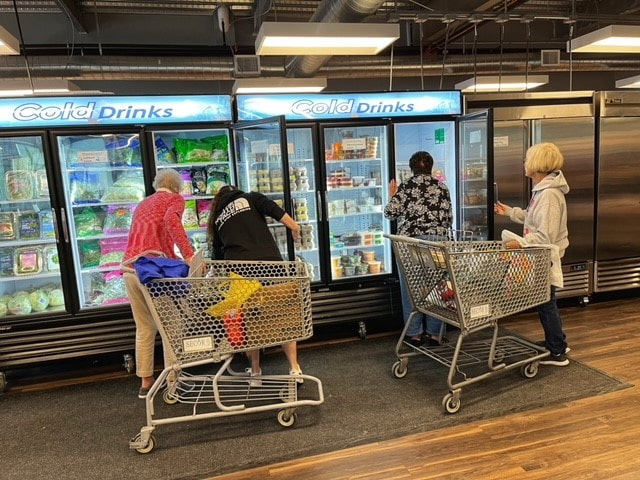
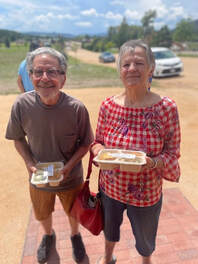
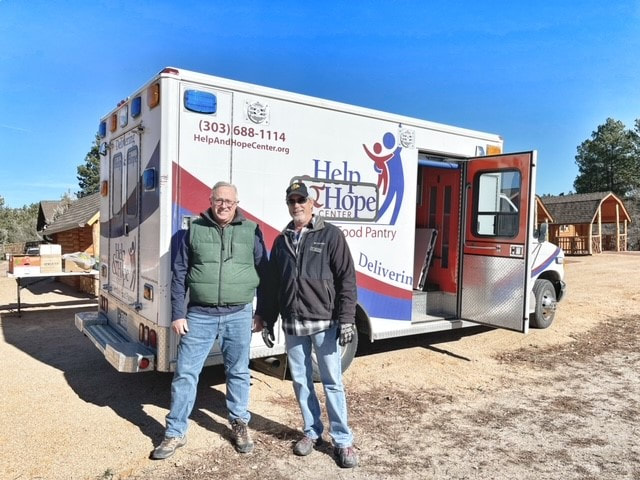

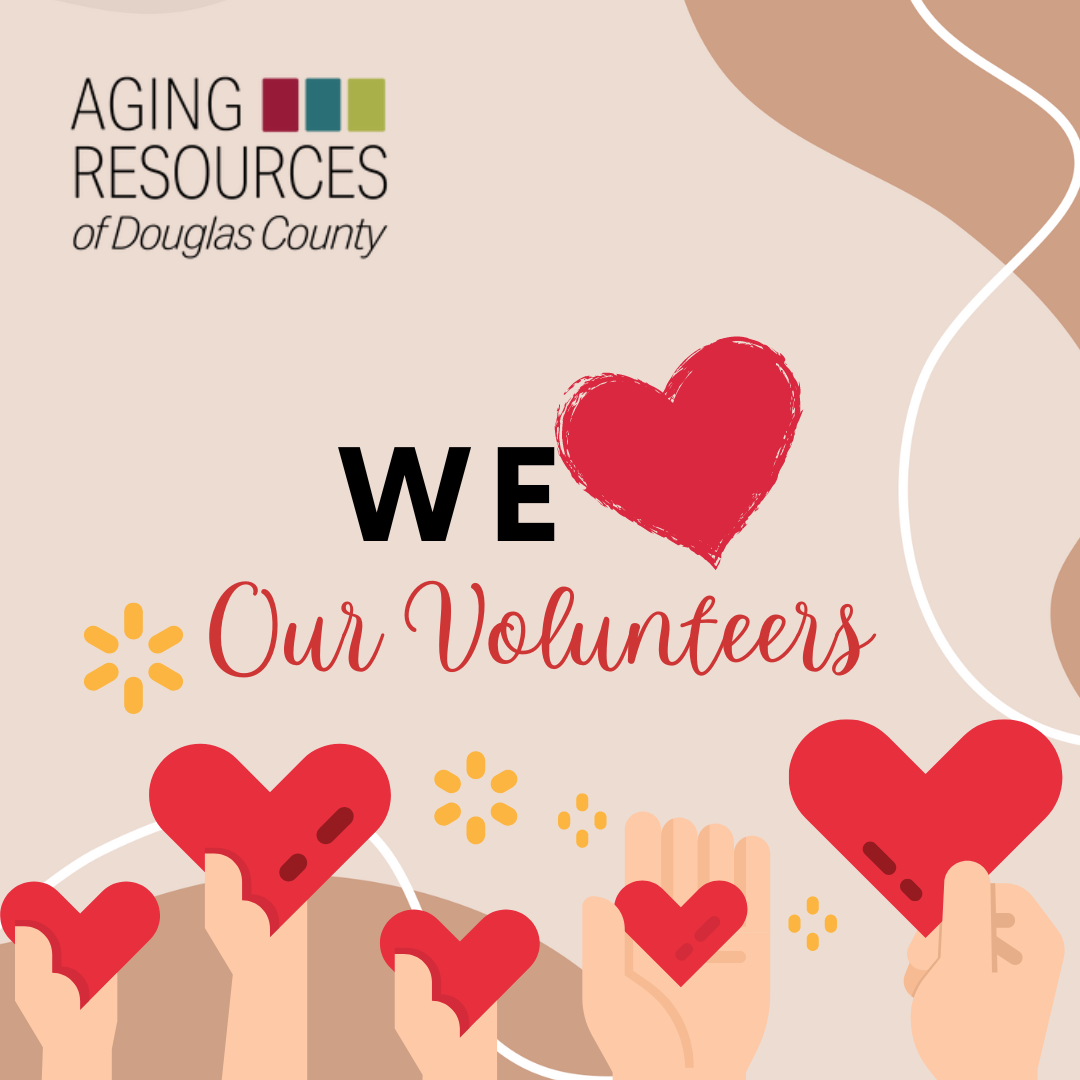
 RSS Feed
RSS Feed



